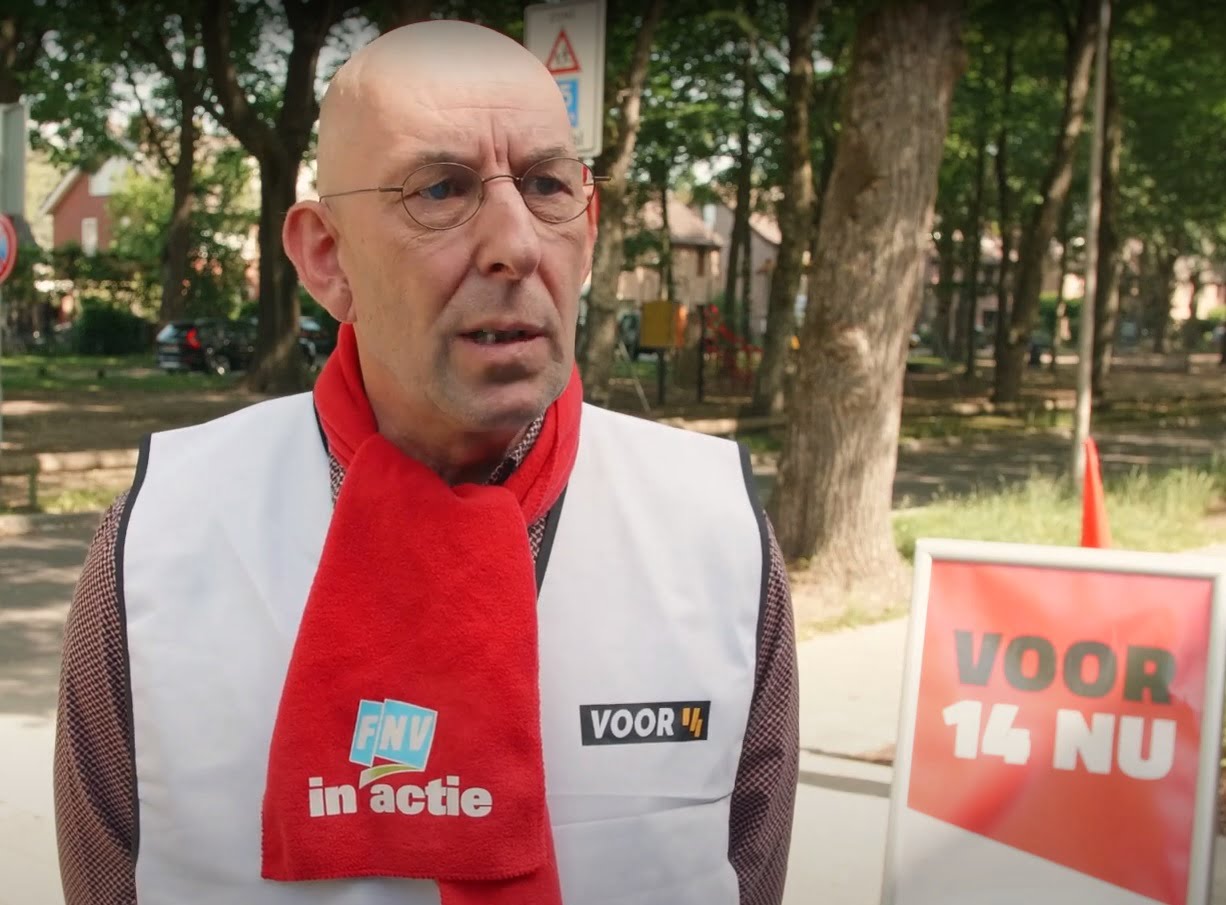At the end of the day, everyone wants to be able to support their family.
Wage, continued payment in case of illness and paid time. In summary, these are the main requirements of the unions that are championing a new collective labor agreement in the healthcare transport and taxi sector. Conversations are characterized by difficult negotiations between the trade unions and employers, in which FNV even calls on members to demonstrate and does not even rule out strikes if necessary.
On the other side of the negotiating table are the employers who are represented through the trade association Royal Dutch Transport (KNV). During the kick-off of the Contract Transport Congress, the FNV trade union campaigned in front of Taxi Expo '22 in Houten. The perfect place to draw the attention of employers. The coming days are crucial for employers as the NEA deadline of the end of October is already in sight.
bid rejected
The employers offer a wage increase of 8%, but they want to keep the waiting days and the wage discount in the event of illness. Employers also want the old paid time rules back, whereby drivers are not paid when there are no rides for them. FNV indicated today in an email to the members that this offer is not acceptable and calls on members to sign the petition in order to collect at least 2500 signatures. As a final warning to employers, they will present the collective labor agreement petition on 21 October.
actions coming up
If the union does not get a response from the employers, actions are on the agenda because the members are combative. That is why FNV is organizing meetings in various places in the country from 10 October. Preparations are being made to escalate if employers do not agree.
driver shortage
It is clear that the situation is dire and became even clearer at the start of the new school year. A national shortage of drivers was often the basis. According to trade union director FNV Taxi Meindert Gorter, without a collective labor agreement it will be a wild west story and a sledgehammer for the entire sector. Drivers leaving the sector are too often due to low wages and staff shortages give people in low paid jobs the power to demand better working conditions. That is exactly what these collective labor agreement negotiations are about.
"What they need even more is a reward for all the flexible time they work. You can think of evening and night allowances or allowances for broken shifts. They even want to be paid for the public holiday that they do not get paid under the collective agreement. ."
Meindert Gorter - union director FNV Taxi

So it's a big set of requirements. It is known that the requirements are clear and since the NEA index will be compiled at the end of October, it is of great importance that both parties agree on a new collective labor agreement. What the members demand is EUR 14 per hour and for that they actually need a 15% wage increase. The latter may not be an option for the employees, given the current developments with regard to investments, the build-up of depleted reserves from the past and the high cost prices. In the collective labor agreements of Healthcare Transport & Taxi you will find agreements about wages, allowances, working hours, overtime, holidays and pension for taxi drivers (street taxi) and contract transport.
NEA index
Calculations are performed by the NEA that provide data on cost developments in the current year and expectations for the coming year. This involves looking at wage costs, fuel costs, congestion and deterioration in accessibility. This index also determines the price increases in the majority of tenders carried out by taxi companies and control centers. The final results of the calculations carried out by the NEA are announced annually in October and published in an overview.
panteia
Commissioned by the Social Fund Mobility, Panteia has made an overview of the latest average cost developments for taxi transport. The cost developments per taxi company can therefore turn out differently. The two most important developments that are taken into account are the increase in collectively agreed wages and an increase in fuel costs. Social Fund Mobility is the client for the NEA index, the annual cost development tool for taxi transport, which is drawn up by Panteia.
contracts
The NEA index is increasingly included in transport contracts. This creates clarity for both parties. For carriers, it excludes an incalculable and sometimes unbearable cost development risk. The advantage of this for clients is that the carriers offer them the best possible price. This price does not include a mark-up for the cost development risk.



